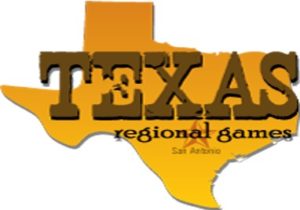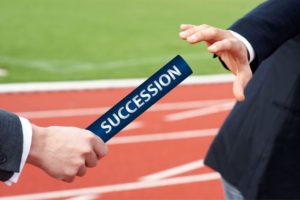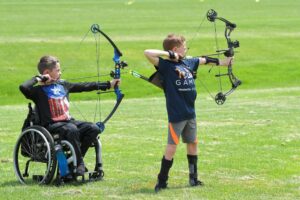By: Dawna Callahan
All In Sport ConsultingOver the last couple of weeks, I’m sure many of you heard or
read about Brian Flores, the former Miami Dolphins head coach suing the NFL for
discrimination. One related storyline that I think is particularly interesting
and has relevance in our industry focuses on leadership representation. If 57.5
percent of current NFL players are Black, according to 2020 data from Statista,
doesn’t it make sense that NFL leadership, or head coaches in this instance, also
reflect and mirror the majority of the league’s players? Yet, Brian Flores was only
one of three Black head coaches in the league in the 2021-2022 season.
The story surrounding Brian Flores’ lawsuit raises some
important questions related to leadership representation within sport
organizations, including those in the adapted sport industry. If we’re looking
at the adapted sport industry, and 100 percent of program participants have a
disability, shouldn’t we also see more leaders with disabilities in key
leadership roles throughout the industry?
Why is this leadership representation paradigm so upside
down in adapted sports? What will it take to shift the paradigm, for leaders
with disabilities to actually be in positions to lead the movement?
Do people with disabilities not realize they can be industry
leaders because there are so few examples to see that it’s possible? The adage
“If you can see it, you can be it” is pretty much nonexistent in the adapted
sports industry.
Right now, it seems there are more questions than answers or
solutions, but I scratch my head wondering how this particular disability
movement is not led by leaders with disabilities.
The adapted sports industry abounds with retired
Paralympians who have developed leadership skills in their training and
competitions and now want to give back to the movement that supported their
athletic endeavors all the way to the podium. We know past, present, and future
Paralympians are not only phenomenal athletes, but also incredible leaders.
Beyond athletes, our industry also includes many injured former military
leaders who put their lives on the front lines and built teams, strategies and
adapted on the fly as part of their years of military service. As Forbes
contributor Jonathan Kauffman recently wrote, “Entrepreneurs with disabilities are
masters at adaptation, resilience, and patience, and it is these
characteristics that are the essential ingredients for success.”
Is the
solution to achieving appropriate representation to turn over as many rocks as
possible to find these leaders? Is it creating a movement that embraces finding
nontraditional talent? Is it developing mentoring and leadership development
programs to prepare future leaders? Again, I don’t yet know the solution nor
have the silver bullet, but I’ll continue to ask the questions in hopes of moving
things forward and making progress.
I imagine there are NFL players that are hopeful that one
day team leadership reflects the player community. Similarly, I am hopeful that
one day the disabled sport movement will be led by those with the lived disability
experience. Imagine just how powerful and impactful that would be for the entire
movement!
What do you think the missing piece is to close this gap?



